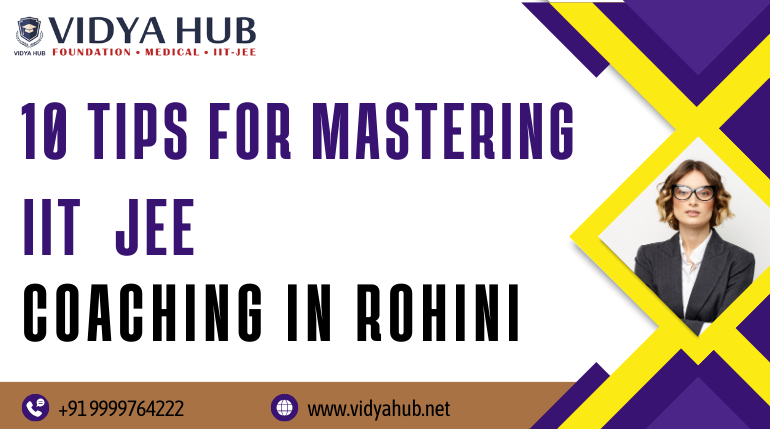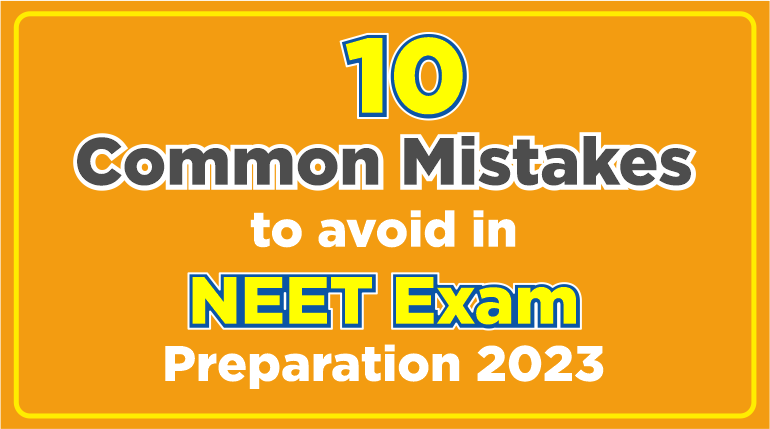The difficulty level of chemistry for NEET depends on your understanding of the subject and your ability to solve problems. Some students may find chemistry easy, while others may find it challenging.
NEET 2023’s chemistry covers a wide range of topics, including inorganic chemistry, organic chemistry, and physical chemistry.
- Inorganic chemistry deals with the properties and behavior of inorganic compounds, such as metals and non-metals.
- Organic chemistry deals with the properties and reactions of compounds containing carbon, such as hydrocarbons and their derivatives.
- Physical chemistry deals with the principles and concepts of thermodynamics, kinetics, and chemical equilibrium.
To succeed in NEET 2023, it is important to have a strong foundation in the concepts and principles of the subject. Regular practice and thorough revision are also crucial to do well in the exam. With consistent effort and dedication, you can definitely improve your understanding and skills in chemistry.
One thing which has proved better than anything else to get results in NEET exam is joining VidyaHub. Sure, coaching centres feel a little like cliché but believe me, we give the results. That is why we are the best institute in Rohini and Paschim Vihar, Delhi.
HOW TO STUDY CHEMISTRY FOR NEET WITHOUT COACHING
How to study chemistry for NEET without coaching? Questions like these arises in aspirants’ minds regularly. Why? Because everyone faces a dilemma between self-studying and coaching centres. To study chemistry for NEET without coaching, you can follow these steps:
- Begin by thoroughly understanding the concepts and fundamentals of chemistry. Make sure you have a clear understanding of all the important terms and definitions.
- Practice as many problems as you can, using textbooks, practice books, and online resources. This will help you to develop a good understanding of the subject and improve your problem-solving skills.
- Pay special attention to the topics that are frequently tested in NEET, such as chemical reactions and equations, chemical equilibrium, acids and bases, and electrochemistry.
- Make use of study materials such as lecture notes, video lectures, and online resources to supplement your understanding of the concepts.
- Solve past year papers and take mock tests to get a feel of the actual NEET exam. This will also help you to identify your strengths and weaknesses, and focus on areas that need improvement.
- Revise regularly to ensure that you remember all the important concepts and can recall them easily during the exam.
- Seek help from your classmates or a tutor if you have any doubts or need clarification on a particular topic.
Remember to stay motivated and focused, and to manage your time effectively. With consistent effort and dedication, you can definitely succeed in your NEET exam without coaching. And questions like ‘How to study chemistry for NEET without coaching?’ will never arise in your mind.
HOW TO STUDY CHEMISTRY FOR NEET QUORA
You can find anything on Quora! How to study chemistry for NEET Quora might be the best option for you to excel in chemistry in NEET 2023. Here are some chemistry study tricks that may help you to learn and retain the subject better:
- MAKE USE OF MNEMONIC DEVICES: These are memory aids that help you to remember complex concepts and information. For example, to remember the order of the elements in the periodic table, you can use the mnemonic "King Henry Doesn't Like Green Salad," where each word represents the first letter of an element.
- USE VISUAL AIDS: Draw diagrams, charts, and mind maps to represent the relationships between different concepts. This can help you to understand and remember the material better.
- USE HANDS-ON TECHNIQUES: Experimenting with chemicals and performing laboratory experiments can help you to better understand and remember the concepts you are learning.
- PRACTICE, PRACTICE, PRACTICE: Solving problems and working through practice questions will help you to develop a deep understanding of the subject and improve your problem-solving skills.
- TAKE BREAKS: Make sure to take regular breaks while studying to rest your mind and avoid burnout. You can also try studying in shorter, more frequent sessions rather than long, intense sessions.
- REVIEW AND REVISE: Regular revision is key to remembering and retaining the material you have learned. Make sure to review your notes and practice questions regularly to reinforce your understanding.
Try applying these tricks to your preparation and you will never ask questions like ‘How to study chemistry for NEET Quora’?
HOW TO STUDY PHYSICAL CHEMISTRY FOR NEET
Physical chemistry is a branch of chemistry that deals with the principles and concepts of thermodynamics, kinetics, and chemical equilibrium. It uses the tools and methods of physics, such as mathematics and computer modeling, to study and understand chemical systems and processes.
How to study for physical chemistry for NEET? Here is a list of tips and tricks:
- USE ONLINE SIMULATIONS AND VISUALIZATIONS: There are many online resources that provide interactive simulations and visualizations of physical chemistry concepts. These can be a useful tool for reinforcing your understanding of the subject.
- CREATE FLASHCARDS: Flashcards are a great way to review and revise the key concepts and definitions of physical chemistry. Write a concept or definition on one side of the card and the explanation on the other side.
- USE THE FEYNMAN TECHNIQUE: The Feynman technique is a method of learning that involves explaining a concept to someone else in simple terms, as if you were teaching it to a beginner. This can help you to better understand and remember the material.
- MAKE USE OF ANALOGIES AND REAL-WORLD EXAMPLES: Using analogies and real-world examples can help to make abstract concepts more relatable and easier to understand.
- USE MEMORY PALACE TECHNIQUE: The memory palace technique is a memory technique that involves creating a mental image of a physical location and associating concepts with different parts of the location. This can help you to remember complex concepts and information.
Students think there is no answer to the question How to study for physical chemistry for NEET? But there actually is! If you follow these carefully crafted tips, you will be a master of physical chemistry in no time.
HOW TO STUDY CHEMISTRY FOR NEET IN 1 MONTH
How to study chemistry for NEET in 1 month? It is possible to cover chemistry for the NEET exam in one month if you are dedicated and follow an effective study plan. However, it will be a challenging task and will require a significant amount of effort and time. Here are some things to consider:
- The NEET exam covers a broad range of chemistry topics, including physical chemistry, inorganic chemistry, and organic chemistry.
- Depending on your current knowledge and understanding of chemistry, you may need to spend more time on certain topics and less time on others.
- It will be important to focus on the most important and frequently tested topics, and to use practice questions and mock exams to familiarize yourself with the types of questions that will appear on the exam.
- Make sure to study regularly and efficiently, and to take breaks to rest and recharge.
- If you are struggling with a particular concept or topic, don't hesitate to seek help from your teacher, a tutor, or a study group.
How to study chemistry for NEET in 1 month? It is possible to cover chemistry for the NEET exam in one month, but it will require discipline, hard work, and effective study strategies.
HOW TO STUDY CHEMISTRY FOR NEET 2023
The difficulty of chemistry in the NEET exam will depend on your background in the subject and your level of understanding of the material.
That being said, How to study chemistry for NEET 2023? With sufficient preparation and practice, it is possible to improve your understanding and skills in chemistry. It is important to review the syllabus, practice solving problems, and seek help when needed. Additionally, using study aids such as textbooks, study guides, and online practice tests can also be helpful in preparing for the NEET exam.
The difficulty of the NEET exam may vary depending on a number of factors, including the difficulty of the questions, the number of candidates taking the exam, and the overall performance of the candidates. It is important to stay up-to-date with any changes or updates to the exam and to prepare accordingly. The best way to prepare for the NEET exam is to review the syllabus, practice solving problems, and seek help when needed.
CHEMISTRY FOR NEET BOOKS
There are several books that can be helpful in preparing for the chemistry portion of the National Eligibility cum Entrance Test (NEET) exam. Here are the best chemistry books for NEET to consider:
- "NCERT Exemplar Problems: Chemistry" is a comprehensive book that covers all the topics in chemistry that are tested on the NEET exam. The book includes a wide range of problems with detailed solutions, making it a useful resource for practice and review.
- "Concise Inorganic Chemistry" by J.D. Lee is a popular textbook that covers the fundamentals of inorganic chemistry in a clear and concise manner. It includes a large number of examples and practice problems to help students understand and apply the concepts.
- "Organic Chemistry" by Morrison and Boyd is a comprehensive textbook that covers the principles of organic chemistry in a clear and easy-to-understand manner. It includes numerous examples and practice problems, making it a useful resource for reviewing and reinforcing the concepts.
- "Physical Chemistry" by P. Bahadur is a comprehensive textbook that covers the principles of physical chemistry in a clear and concise manner. It includes numerous examples and practice problems to help students understand and apply the concepts.
These are just a few examples of the best chemistry books for NEET that are available to help students prepare for the NEET exam. It is important to choose a book that is well-organized, easy to understand, and includes a wide range of practice problems.
EASY CHAPTERS IN CHEMISTRY FOR NEET
It is difficult to determine easy chapters in chemistry for NEET exam, as this will depend on the individual student's strengths and weaknesses, as well as the specific content and difficulty of the exam. However, there are some topics in chemistry that may be considered easier for some students, depending on their background and understanding of the subject.
Here are a few examples of topics in chemistry that may be considered easier for some students:
- Basic concepts: Topics such as the mole concept, chemical reactions, and the periodic table may be considered easier for some students, as they build the foundation for more advanced concepts in chemistry.
- Stoichiometry: This topic involves calculating the quantities of reactants and products in chemical reactions and may be considered easier for some students who are good at math.
- Gas laws: Topics such as the ideal gas law and the gas laws of thermodynamics may be considered easier for some students who understand basic concepts in physics and math.
- Acids and bases: The properties and behavior of acids and bases may be considered easier for some students who understand basic concepts in chemistry and can apply them to these topics.
It is important to note that these are just a few examples of easy chapters in chemistry for NEET for some students. It is important to review the syllabus and practice a wide range of problems in order to prepare effectively for the NEET exam.
HOW TO STUDY PHYSICS FOR NEET
Want to know how to study physics for NEET? Here are some tips and tricks that may help you study physics more effectively:
- USE MNEMONIC DEVICES: Mnemonic devices are memory aids that can help you remember important information. For example, you can use the mnemonic "Oh, Be A Fine Girl, Kiss Me" to remember the spectral class of stars (O, B, A, F, G, K, M).
- USE DIAGRAMS AND SKETCHES: Diagrams and sketches can be helpful in visualizing and understanding complex concepts in physics. Make sure to label your diagrams and sketches clearly, and include any relevant equations or formulas.
- PRACTICE SOLVING PROBLEMS: The best way to improve your problem-solving skills in physics is to practice solving as many problems as you can. This will help you become more comfortable with the types of questions you will encounter on exams, and it will also help you identify areas where you need to focus your study efforts.
- USE ONLINE RESOURCES: There are many online resources available that can help you study physics, including videos, simulations, and interactive quizzes. These resources can be a useful supplement to your traditional studying methods.
- TAKE BREAKS: Don't try to study for long periods of time without taking breaks. It's important to give your brain time to rest and absorb the information you have learned.
- SEEK HELP WHEN NEEDED: If you are struggling with a particular concept or topic, don't be afraid to ask for help. You can seek guidance from your teacher, a tutor, or a study group.
I hope by using these tips and tricks, you can make your studying more efficient and effective and get the answer to how to study physics for NEET?.
Good luck for NEET 2023!







